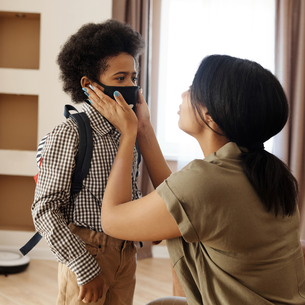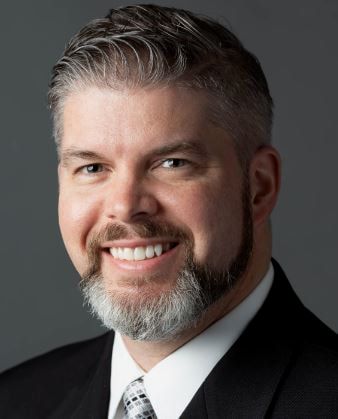 For the first time since December 20, fewer than 10,000 Texans are hospitalized with COVID-19 according to the Texas Tribune. However, the current number of 9,401 Texans hospitalized, and the emergence in Texas of new, highly contagious strains signals the grim reality that it will long time before things will return to normal. As the COVID crisis lingers, it's effect on people's lives, especially those trying to manage children between two homes, grows increasingly burdensome. For those who have family law disputes, the challenges are increasing as the COVID crisis lingers into its second year. Here are the top three problems that our firm has experienced with our clients: 1. Job Loss Affecting Child Support Payments One of the most obvious and direct impacts to daily life due to the COVID crisis is how it has hurt family income. As more small businesses flounder and shut down, job losses in Texas are climbing steadily. Separated and divorced parents are often already struggling to make ends meet, but as the COVID crisis endures, they will see savings dry up and soon existing child support payments may slow or stop. Courts in the Houston and Galveston areas remain sensitive to parents in this situation but are proceeding with child support enforcement case as normal. They are issuing contempt orders as readily as before, and it is incumbent on the parent ordered to pay support to approach the Court early about having their child support obligation reduced if they are experiencing financial difficulty due to COVID related job loss or reduction in hours. Failure by the payer to seek to have the previous order modified- even if temporarily - may result in contempt actions being brought by either the obligee or the Texas Attorney General. And despite the understanding the Courts may grant the obligor in these extraordinary times, it should be noted that the Courts have not abandoned the expectation that parents must supply evidence of their particular financial challenges or economic hardships. It's recommended that parents seek legal counsel to assist them. Many lawyers, such as our firm, offer affordable limited scope services to help in this situation. 2. Changes in Living Conditions For many Texas families, the day to day physical living conditions and circumstances have been negatively impacted by the lingering COVID crisis. In a recent divorce case, the father sought the immediate sale of the marital home where the mother and the two children were still living. The father, an optometrist, claimed that the COVID crisis had reduced his income by half, and as the sole wage earner, he could no longer afford to pay the mortgage and costs for the couple's large home. The mother counter-argued that the father chose to keep his practice closed longer than necessary and that COVID restrictions had been lifted. The Court reviewed the larger financial situation of the couple and ordered the immediate sale of the home and temporary support payments for the mother for her to rent a smaller house. The Court declared that "COVID-19 has at least temporarily ruined the financial prospects of both of these parties. And neither of them is to blame." 3. In-person vs. Online Learning Many if not most Texas schools offer two options for children to attend school- traditional attendance at the school ("brick and mortar") or virtual learning using software and the internet ("online"). However, when parents do not agree on what is best for the children- as often happens during and after divorces- then disputes arise that often wind up in court. In a different recent divorce case, a temporary order directed the mother would be the temporary primary caregiver of the children and the father would have weekend visitations through the divorce proceedings. It also directed that the children should be taught virtually. The mother, although not working herself and being supported financially by the husband, was not satisfied with the temporary order because she wanted the kids in school. After the temporary hearing, the mother shut off her internet service- which she calculated she could do because it was not specifically prohibited by the Court. Without internet access the kids could not attend school virtually. The father was soon alerted to the situation and took the mother back to court. At the emergency hearing the mother pressed to explain her actions and their impact on the children's education. The mother "mostly deflec[ed]" and stated the children's educational needs were being met otherwise. The Court ultimately ordered the mother to immediately provide internet and all necessary equipment for the children to attend school virtually. The Court also admonished the mother that if she again attempted to thwart the order, then primary care would be given to the father. In Summary The COVID crisis has been with us for over a year and it seems we have a long way to go before things return to normal. The long length of this crisis is having trickle-down effects on separated and divorced families in many ways. These result is an increase in conflicts where often the only resolution is to seek relief from the courts with the help of an experienced family law attorney. If you have experienced any of these issues, or you if you think there are other issues that are more widely experienced that the ones we have listed, we invite your comments below.
1 Comment
There is a lot of speculation among experts about whether divorce rates will increase after the pandemic is over and once the courts open up and become fully functional. Many couples choose to avoid dealing with their marriage problems but with recent social distancing, are being forced to interact and engage with each other in different ways now that they are stuck at home together. They're having to engage each other without the prior distractions of work away from home and socializing away from home. For good or ill, couples are having to deal with each other now more than ever. If there has been a lack of meaningful time in marriage relationships, there are fewer and fewer excuses to avoid your partner. In some cases this may be just the right medicine needed for a troubled marriage. In others cases, the pandemic may be the straw that breaks the camel's back. In many cases stay-at-home orders are further destabilizing at-risk marriages. COVID Divorces Are Already Trending UP We are all dealing with much higher stress levels due to the strains of financial, physical, and emotional impacts of the pandemic. There is a growing body of evidence to show that spending more time together in close quarters, can increase the chance of divorce. In other countries who reacted to the first wave of COVID-19 with weeks of strict lockdowns, a spike of record high numbers of divorce filings were the result. And although it is debated whether we are now in a second wave of COVID-19 or if we are only seeing one prolonged wave, there is no doubt that domestic situations that are already at risk of divorce, are only going to get worse as the lockdown continues. Here in League City, Texas during the pandemic, we are seeing more people asking for information about getting a Galveston county divorce or a Harris county divorce. But the question for each couple will be whether they have reached an emotional point of no-return. Your Emotional Bank Account Some therapists refer to a couple's relationship like a bank account in which emotional deposits are made and emotional withdrawals are taken. If the couple are depositing loving thoughts, then their emotional bank account is high and they have good feelings towards each other and a healthy marriage. However if they are not meeting each other's needs, or are making bad relationship choices, then with each argument or disappointment, they are making an emotional withdrawal from the bank account. Many people are facing literal financial ruin as the pandemic eats away at their savings and resources. For the majority of these people, they were already living paycheck-to-paycheck with very little savings for emergency situations. Now that the pandemic has stopped or slowed their paycheck, they are experiencing financial ruin. This is very similar to the effect of the pandemic on their marriage relationships. The Pandemic Is Forcing the Issue Even during the best of times, many couples live in quiet misery in loveless marriages. They do so because of social or financial pressures they feel they will have to endure if they get a divorce. They live joyless lives in a broken marriage with little or no savings in their emotional bank accounts. Many are simply biding their time until some event happens when they think the situation will be right, such as when the children leave the home, or when they retire. But they have been able to endure this unhappy existence up to now due to distancing themselves from the other spouse and filling their time with distractions such as going off to work or social interactions with other people. This so far has relieved the tensions of interacting with the other spouse. Now however under the quarantine, the tension is constant and unrelenting. They cannot get away, and there are few distractions. You Have Choices If you are in a marriage relationship where the emotional bank account is running very low, then you must decide if the marriage is worth the investment it will take to revive it. Then you must convince your spouse to make the same investment. If you both want your relationship to remain emotionally solvent, you must take immediate and aggressive action. Just like a couple in financial trouble, you should seek the help of a professional advisor. A counselor (marriage, family, and/or individual) should be consulted and you should follow their advice. And you must make daily deposits into that emotional bank account. However, some accounts are hopelessly overdrawn. When the emotional debts far exceed any hope to getting out of it , then you need admit that your best option for the future is to make a clean break and a fresh start. Financial debt relief is called "bankruptcy" but emotional debt relief is called "divorce". Many couples have reached this stage whether they will acknowledge it or not. If that is the case, then inevitably one or the other spouse will be seeking divorce now or in the future. For those people, the pandemic alone is probably not the reason for divorce, but it has exasperated the situation or at the very least created an environment where avoiding the problem is not longer bearable . Most people thinking about divorce during this outbreak were already severely overdrawn on their emotional accounts before the pandemic. They are now finding themselves at a point where no amount of deposits will make a difference. If you have reached this point and are now simply bidding your time until the pandemic ends before seeking a legal divorce, then you should think again. If you feel that you are forced to endure the current situation, then you are probably wrong. There is no telling how long the pandemic will continue and there are likely to be viable alternatives you have not thought of. If the situation has become intolerable you should seek advice from a professional for your League City divorce to help you generate ideas and options- even while the pandemic is going on. America is in the grip of the deadliest viral outbreak in a century and it is happening in an election year during the most divisive political eras since the Civil War. It’s a perfect storm.
Swirling in this political maelstrom is the hot wind of social media debates over masks, social distancing, opening up the economy, individual rights and public health. There are a few people blowing hard in one or the other direction. But most of us are standing in the eye of the storm feeling pulled in all directions. It seems like we are being force to make a choice between being safe from a potentially deadly virus or protecting our economic well-being and our right to not have the government dictate our private lives. It seems sometimes like we are being ask to choose between life or liberty itself. In the last few months, the government, in the name of protecting lives from the COVID-19 virus, has implemented extraordinary restraints on many of our fundamental liberties. These include the Free Exercise Clause of the First Amendment, the First Amendment Right to Assembly ; the right to interstate travel under the Commerce Clause; Privacy rights under the 4th Amendment, and for those lingering in prisons and jails, the right to a speedy trial under the 6th Amendment. Are all these violations of our liberties even legal under the U.S. Constitution? Yes actually. But only for a limited manner and a limited time. During public health emergencies, state and local governments have the authority to enact measures to protect the welfare, health, and safety of their citizens. While in normal times these would be condemned as an infringement of our constitutionally protected rights, it is within the authority of the states' police powers under the 10th Amendment for the government to take extraordinary actions in extraordinary times. This clause in the 10th Amendment gives government in times of crisis the power to abridge certain individual rights we would normally expect to be unbreakable. Specific to our times, the police powers under the 10th Amendment gives states the authority to force isolation for public health purposes. As recent as May 30, 2020, the U.S. Supreme Court has affirmed that states do have the power to force isolation on citizens for their health and safety. Chief Justice John Roberts in his concurring opinion recognized the uniqueness of our "extraordinary health emergency" that is “fraught with medical and scientific uncertainties” as well as the highly contagious nature of the virus, stating that leeway should be given to states power to protect health and safety. But government's police power under the 10th Amendment is not a blank check. The government's restrictions on our liberties must pass the legal test we call "strict-scrutiny" analysis. Government restrictions when challenged in court, must pass the test of being both "a compelling government interest” and also being the “least restrictive means” of achieving the government's legitimate purpose in protecting the public. And who will be the ones putting the government's restrictions on our liberties to this strict-scrutiny test? It will be your friendly neighborhood lawyer. Lawyers have a job - it is called vigilance. Thurgood Marshall once said, “grave threats to liberty often come in times of urgency.” This has never been more true than today. Recent history confirms Marshall's axiom that when government is given authority to curtail our rights during times of crisis, it is very hard to get it back from the government when the crisis has ended. One example is the huge expansion of government surveillance of the public after 9/11. Prior to 2001 the government would not be tolerated to do the level of spying on U.S. citizens it was granted under the so called Patriot Act - a law which was passed by Congress on a promise that the spying would only be temporary. Yet 19 years after the terrorist attacks, that surveillance program continues to this day. General John Stark's famous statement of fierce dedication to liberty, which became the motto for the State of New Hampshire, is "Live Free or Die". But it is doubtful that he meant that to be taken as literally as some do today. Even during a global pandemic, we do not have to make such a drastic choice - nor should we allow anyone to make us think we do. The preamble to the U.S. Constitution reminds us that it is our God-given right to have BOTH life and liberty (and the pursuit of happiness). For life and liberty to both flourish, there must be a delicate balance struck between the necessary restrictions on certain actions during security, health and safety emergencies, and the full exercise of personal liberties we should expect as the norm in all other times. As advocates for citizens who seek to limit government authority, lawyers have a responsibility to be sure the government doesn't abuse or upset that delicate power balance. Attorneys - often maligned and put down by the public, are actually the guardians of citizen power against an overreaching government that would take that power away. As we try to navigate the rapidly changing environment of the pandemic, where new technologies and treatments will constantly shift the need to restrict liberties we once enjoyed, it is up to lawyers and policy makers and the citizens they serve, to ensure that measures designed to protect us don't permanently reduce our fundamental rights. If we do not stay vigilant, we may forever lose our liberty. And if that is allowed to happen, then we would compound the tragedy of this pandemic with the travesty of oppression. Instead, lets make clear headed decisions based on the best available information. Let's put aside our selfish desires and fears and think equally about what is good for neighbors and our nation both today and in the future. We don't have to make a choice to "Live Free or Die". Let's survive today, but let's also preserve our freedoms for tomorrow.  A big decision needs to be made early on in a divorce case- who will take care of the kids? Separated or newly divorced parents have to make tough decisions about child care in the best of times, but with the spread of the coronavirus, those choices are harder than ever. As our Texas Governor moves forward with re-opening the economy, more parents are returning to work. This has made child care decisions more urgent -and desperate-for millions of Texans. Child care options are decreasing Most single parents with minor children need to work during the day. In the pre-pandemic days, one common option for many was to have grandparents watch the children while the primary care parent works. However, not every parent is blessed with this as an option. And now, with the spread of the Covid-19 virus and it's high death rate among the elderly, many people who did have this option are now not willing to risk the lives of their own parents by exposing them to grandchildren who often do not display symptoms of Covid-19 and can infect their unwitting grandparents with the virus. The usual option, if relatives are not available, is to rely on private daycare. But many parents are worried that they will be putting their children at risk by taking them to a daycare center during a pandemic. This fear is spurred by news that Texas has just experienced one of it's most infectious and deadly weeks for Covid-19. State data shows an increase in coronavirus cases stemming from both large gatherings and child care centers. The state reported 576 positive cases of the coronavirus — 382 staff members and 194 children — in child care facilities as of this week. That’s up from 59 cases in mid-May. Are Daycare Facilities Safe? Little Guidance from the Government. Of those facilities that remain open, even at limited capacity, the State's response to the fears of contaminating kids in daycare has been muddled, to say the least. Just two weeks ago, the government surrendered all existing regulation of safety measures at state-licensed child care centers. As of mid-June they were no longer required to comply with a list of safety precautions that had been in effect since mid-April. That meant centers could decide for themselves if they wanted to check staff temperatures, require parents to drop off their children outside or stop serving family-style meals, according to a previous notice from the state Health and Human Services Commission. Then, in an apparent reversal this week, Gov. Greg Abbott directed a state health agency to enact new safety standards for child care centers during the coronavirus. However those new standards have not yet been published. To make matters less clear, individual county and municipal authorities in Texas have been sending mixed messages to citizens about how their local government plans to respond to the recent deadly spike in infections. In Harris County, which includes the City of Houston, Judge Lina Hidalgo has announced plans to mandate masks and return to the stay-at-home conditions imposed this Spring. Meanwhile in neighboring Galveston County, which includes more suburban and semi-rural /industrial areas, Judge Mark Henry has defiantly announced that he won't issue any new government restrictions and said people must rely on their own personal responsibility to stay free from infection. Ultimately, Parents Must Find Daycare Options and Judge Facility Safety On Their Own Experts say that daycare is a key piece to reopening the U.S. economy. If a single parent must go back to work and has no other child care options, then choosing among the remaining daycare facilities that remain open in the area may be the only choice. But without clear government guidance, selecting the safest daycare facility for your child is a daunting challenge. That is why we are offering a checklist of the most important, researched questions to ask a daycare facility before you enroll your child. The checklist is based on expert recommendations and can help you determine if a child care, daycare or daycamp facility is coronavirus ready. No facility can guarantee your child will be 100% safe from infection, but download this free checklist and bring it with you when you visit the facility or ask questions from it when on the phone. Researched from the CDC and other experts, this question checklist will help you pick the safest daycare facility. The Palmer Law Firm is offering this checklist as a free public service. To download the Daycare Safety Checklist. Please click HERE.
|
Need more information about this or other family law topics in Texas?
Click the button below to book a FREE ATTORNEY CONSULTATION (832) 819-3529
Attorney Sean Y. Palmer has over 20 years of legal experience as a Texas Attorney and over 25 years as a Qualified Mediator in civil, family and CPS cases. Palmer practices exclusively in the area Family Law and handles Divorce, Child Custody, Child Support, Adoptions, and other Family Law Litigation cases. He represents clients throughout the greater Houston Galveston area, including: Clear Lake, NASA, Webster, Friendswood, Seabrook, League City, Galveston, Texas City, Dickinson, La Porte, La Marque, Clear Lake Shores, Bacliff, Kemah, Pasadena, Baytown, Deer Park, Harris County, and Galveston County, Texas.
Call (832) 819-3529 If you live in the Houston area and would like to consult with one of our attorneys, please leave your information below.Archives
July 2024
Categories
All
|
The Palmer Law Firmwww.thepalmerlawfirm.com
(c) 2024 Sean Y. Palmer |
DISCLAIMER:
This website is for educational and informational purposes only and is not, nor is it intended to be, legal advice. Viewing of this website does not create an attorney-client relationship. All legal matters should be discussed with a licensed attorney before you take any action. You should consult with an attorney for advice for your individual situation. Sean Y. Palmer is the attorney responsible for the content of this site. DATA NOTIFICATION: Pursuant to the Health Insurance Portability and Accountability Act, and the Texas Medical Records Privacy Act of the Texas Health and Safety Code, consumers are noticed that their protected healthcare information may be transmitted electronically. |


 RSS Feed
RSS Feed